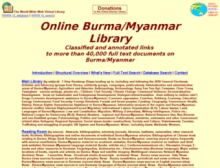Resource information
A new report by the Karenni Civil Society Network (KCSN) raises concerns about
international “peace support” programming amid
st increasing Burma Army militarization in
Karenni State after the2012 ceasefire with the
Karenni National Progressive Party (KNPP).
The report “Where is Genuine Peace?” exposes how a pilot resettlement project of the
Norway-led Myanmar Peace Support Initiative (MPSI) in Shardaw
Township is encouraging
IDPs to return to an area controlled by the Burma Army where their safety cannot be
guaranteed.
The MPSI claims that between June 2013 and
September 2014 it supported 1,431 IDPs to
return to 10 Shadaw villages forcibly relocated in 1996. However, KCSN found only about a
third of these IDPs in the villages, most of whom were working-age adults returning to carry
out farming, but not daring to return permanently due to fears of renewed conflict. As in
other parts of Karenni State, the Burma Army has been reinforcing troops and fortifying its
positions in Shadaw, where there is a tactical command centre and over 20 military
outposts.
“Instead of encouraging IDPs to return home be
fore it is safe, international donors should
be trying to ensure that the rights of conflict-affected villagers are protected,” said one of
KCSN. “There must be pressure on the government to pull back its troops from the ethnic
areas and start political dialog
ue towards federal reform.”
KCSN also criticizes the MPSI for fuelling conflict by ignoring Karenni-managed social service
organizations that have been providing primary health care and other support to IDPs in
Shadaw for decades. MPSI’s health support was through the government system, which
remains highly centralized and dysfunctional in Karenni State.
“Donors should not just give one-sided support to expand government services into ethnic
conflict areas. This won’t be effective, and will
only increase resentment and fuel conflict,”
said KSWDC.
The report also raises concerns about rampant
resource extraction after the ceasefire, land
confiscation, military expansions and lack of
transparency around dam plans on the Salween
and its tributaries in Karenni State. KCSN
is calling for a moratorium on large-scale
infrastructure and resource extraction projects
in Karenni State until there is genuine peace." [from the KCSN press release of 5 December, 2014]


